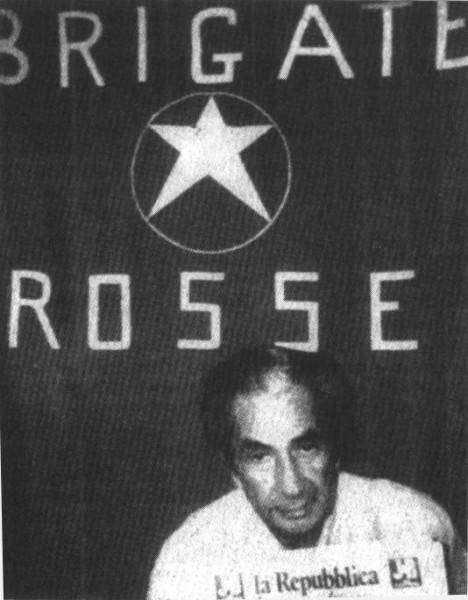Terrorism. President Napolitano Takes a Pause for Remembrance
Last year on May 9, “Memorial Day” was celebrated for the first time in Italy. It was instituted by Parliament thirty years after the murder of Aldo Moro, the President of the Christian Democratic Party. The day chosen for the memorial is the anniversary of Moro’s death, a choice made “in order to remember all national and international victims of terrorism and of the attacks by terrorists.”
The President of the Republic, Giorgio Napolitano, in a speech that was lauded by all political parties, reminded us of the climate that all Italians lived in those years, the so-called “Anni di Piombo,” when almost every day, on the radio and television, we heard news of attacks, injuries, and murders of university professors, judges, lawyers, journalists, local administrators, leaders of companies, political militants, and policemen. A war declared on the Italian State by the “Brigate Rosse,” was a war fought according to the ideal of social equality but by the worst method to pursue it: innocent people were targeted and condemned to death because of their work in the State apparatus or simply because they were wearing a uniform. It was a war fought not facing the “enemy” in a clear and open way, but one that chose victims clandestinely, unexpectedly striking them during their daily routines, many times, for example, while they were waiting for the bus to go to work, after having dropped off their children at school. Though, it is necessary to make a distinction between terrorism and the bombs in Piazza Fontana and at the station in Bologna, even if still today in both cases there are many shadows and lingering questions that need to be answered, especially with regard to the role of the secret service in our country.
In his speech, the President of the Republic expressed the feelings of solidarity that Italians have felt and still feel towards the victims’ relatives, mothers, fathers, wives, and children whose lives since then have been inexorably changed. Giorgio Napolitano also stated that the victims must be remembered. May 9 was not chosen casually as a date; it refers to May 9, 1978, the day in which the fight against terrorism of the State reached its highest level, with the murder of a man who symbolized an entire generation of politicians—politicians who marked the beginning of a new era in Italy, after the end of Fascism and the tragic conclusion to the Second World War, and the Italy’s passing from a monarchy to a republic. Aldo Moro’s sacrifice represents the hundreds of sacrifices that must not be forgotten, and it is necessary to remind younger generations who were born after that bloody season in recent Italian history. The Italian President also criticized the visibility given to former terrorists who frequently appear in the media and are interviewed about their pasts. Napolitano was referring in particular to an interview with a terrorist who killed journalist Carlo Casalegno and expressed his “sorrow” for the relatives of the man he killed years ago. The “sorrow,” in Napolitano’s opinion, does not express real remorse for his actions, but a rather mild repentance. Furthermore, similar statements, together with the attitude of “idealizing” the terrorists who are often seen as dreamers fighting for a better world (an attitude that is clearly visible during some interviews) does not help the victims’ families to feel protected and supported by the State. The President stated in his speech that it is time to stop allowing former terrorists to have their say and occupy a space in the media that they do not deserve, while it is also time to pay an appropriate tribute to all those who were killed by terrorists and died in the name of the State. Anyone who has killed and has paid his debt has the right to enter society again, though according to Napolitano, this should be done with discreet behavior and most importantly by “never forgetting his moral responsibilities,” and not “by looking for media attention in order to justify acts of violence.”
During his speech the President had to stop at various times, moved to tears.
The memorial occurs at a deeply significant moment for Italy, ushering in a new season for reflection on our history. It is a moment that has been years in the making and coincidentally arrives at the same time as the inauguration of the new Berlusconi government. It will hopefully bring a sense of reconciliation to a country that for many years has been torn apart by terrorism, by bombs without a clear sender, and more recently, by useless political polemics which result in confusion and erode the trust of most Italians.
(Edited by Giulia Prestia)


































i-Italy
Facebook
Google+
This work may not be reproduced, in whole or in part, without prior written permission.
Questo lavoro non può essere riprodotto, in tutto o in parte, senza permesso scritto.